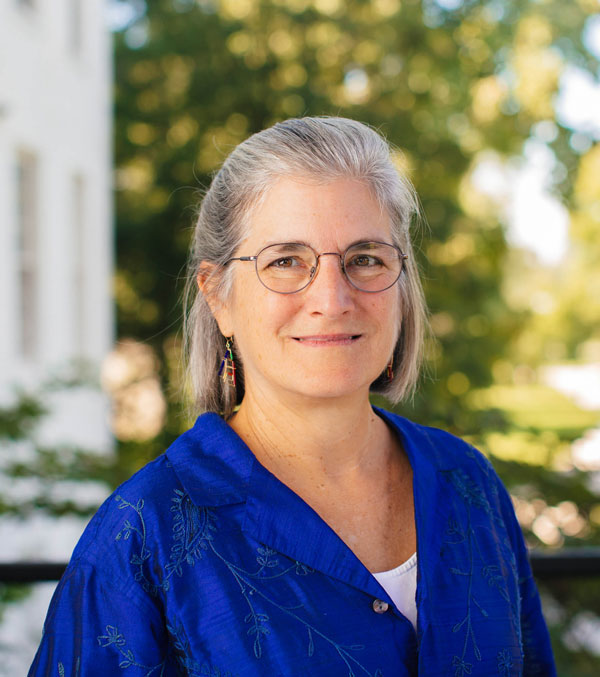Marta Robertson
Professor
Sunderman Conservatory of Music
Contact
Education
M.A., University of Michigan
Ph.D., University of Michigan
Marta Robertson is a Professor of Music in the Sunderman Conservatory where she teaches courses in musicology, world music and dance, and First Year Seminars. For Robertson teaching, scholarship, and performance are collaborative, participatory, and contextual.
In her classroom, Robertson is known for her enthusiasm and energetic discussions. In fact, students are regularly engaged in making their own sonic examples or physical movement to experience historical and cultural diversity. By asking “What is this music great for?” rather than “What is great music?,” global dance and music traditions, European American art music, and American popular music coexist fluidly in her classroom, as well as in her research. She believes in the potential of the liberal arts classroom to make the world a better place as students engage each other in “wicked,” open-ended problems through the lens of music and dance. She explores with students the tools to lead engaged and productive lives into the future, as with the co-authored digital project, “Music and Spectacle: A Visual Representation of Sound in the Context of War,” supported by a grant from the Johnson Center for Creative Teaching and Learning.
Robertson’s scholarly and creative activities explore the intersections between movement and music in diverse traditions, including Okinawan diasporic communities, World War II Japanese American incarceration camps, and the collaborative process of Aaron Copland and Martha Graham in Appalachian Spring. Her current book project, Fenced In! (forthcoming Illinois University Press), examines the power of music and dance in the daily lives of Japanese Americans, incarcerated during World War II, to negotiate, express, and even resist cultural and individual identities. Scholarship leading up to the book has already received awards from the American Musicological Society, including her article “Ballad for Incarcerated Americans: Second Generation Japanese American Musicking in World War II Camps” that received the 2018 inaugural Judy Tsou Award for Critical Race Studies, and her Spring 2020 American Musicological Society/Library of Congress Lecture entitled “The Uncommon ‘Gift to be Simple’: Japanese American Influence in Appalachian Spring.”
Robertson’s interdisciplinary scholarship explores methodologies to bridge the fields of music and dance, two fields that are frequently considered mutually exclusive because of their highly specialized techniques. Her studies of the collaborative process between Aaron Copland and Martha Graham in Appalachian Spring, have introduced processes by which a musical score and choreography can be simultaneously analyzed and further contextualized culturally. As a musicologist with training in dance and ethnomusicology, Robertson regularly turns to ethnographic technique, for example, interviewing former Graham Company dancer Peter Sparling to create an integrated rhythmic analysis of music and choreography in Appalachian Spring. Currently, she is expanding this methodology to examine the artistic culture in Japanese American incarceration camps during World War II through ongoing conversations with former incarcerees about the meaning of music and dance during their detention. Putting theory into practice, she performs Okinawan classical dance with her sensei, Grand Master Kazuko Chibana Volkmar, and the students of the Aharen Honryu Keisen Wa No Kai school. She was honored to represent Chibana’s Okinawan dance school, performing at festivities for the 2019 inauguration of Gettysburg’s fifteenth President, Robert W. Iuliano.
Robertson coaches regularly for the Faculty Success Program of the National Center for Faculty Diversity and Development. Surrounded by the apple orchards of rural south-central Pennsylvania, she shares an historic farmhouse with her spouse, GailAnn Rickert, and her training partner, a rambunctious golden retriever, Maisie.
